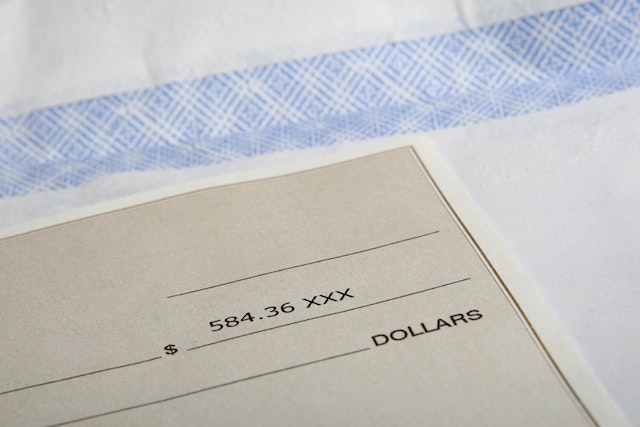
The majority of landlords in Pennsylvania require a security deposit from the tenant on top of other fees. This deposit is typically returned to the tenant at the end of the lease term. It’s important, however, to note that every state has different laws regarding it.
For this reason, in this article, we’ll provide you with an overview of the security deposit laws in Pennsylvania, PA.
Why Landlords Should Require a Security Deposit?
A security deposit has several benefits to landlords in PA. They include:
- Payment for a tenant’s utility bills when they move out. In some cases, utility bills arrive after a tenant has moved out of the rental unit. The security deposit will offset the charges.
- Coverage for cleaning costs when a tenant moves out. Sometimes tenants don’t maintain a property well and the security deposit will pay for the required cleaning.
- Supplement for a landlord’s loss in rental payments. In rare cases, tenants experience a sudden financial downfall. The security deposit can supplement the landlord financially for a while.
- Payment for the landlord’s lost rental income. Cases happen where a tenant abandons the rental unit suddenly or commits a breach of contract. The security deposit can help deflect the landlord’s financial loss.
- Offset the landlord’s expenses when it comes to property damage. Sometimes there are damages left upon the tenant’s move out. The security deposit prevents a landlord from going into his or her own pockets for the expenses.
Guide to Pennsylvania’s Security Deposit Law
1. Pennsylvania Security Deposit Limit
In the state of Pennsylvania, there’s a maximum limit for landlords when it comes to collecting a security deposit. They are limited to collecting an equivalent of two months’ rent as a security deposit for the first year of tenancy. For the subsequent years, landlords are only allowed to collect the equivalent to a month’s rent.
2. Nonrefundable Fees
Does the state of Pennsylvania allow non-refundable fees?

There’s no statute when it comes to nonrefundable fees, so it depends upon the conditions agreed between the landlord and the tenant.
3. Storing a Tenant Deposit in Pennsylvania
Pennsylvania laws require landlords to store security deposits in a separate account.
- Escrow Account
It’s required for funds held over 2 years and funds amounting to over $100 to be deposited in an escrow account federally. It could also be kept in a state-regulated institution maintained by any of these four organizations:
- The Federal Reserve Board
- The Federal Home Loan Bank Board
- The Comptroller of the Currency
- The Pennsylvania Department of Banking
The landlord can choose whether to keep it in an interest-bearing or non-interest-bearing account.
- Guarantee Bond
A landlord can also opt to post a guarantee bond equivalent to the security deposit amount. A bonding company authorized by Pennsylvania to conduct business in its State must issue the bond.
4. Written Notice after Security Deposit Receipt
Notice in writing must be furnished to tenants by the landlord detailing information on the security deposit and its amount. The name and address of the banking institution where the deposits are kept must be included.
5. Withholding a Tenant’s Security Deposit in Pennsylvania
Under Pennsylvania laws, there are applicable conditions that permit a landlord to keep a tenant’s security deposit.

They can deduct for property damages caused by a tenant’s negligence. He or she can withhold the security deposit due to unpaid rent or when a tenant breaches the rental agreement.
6. Walk-Through Inspection
Does the state of Pennsylvania require a walk-through inspection?
No, there’s no need to conduct a walk-through inspection before a tenant moves out of the premises.
7. Security Deposit Refund in Pennsylvania
When a tenant moves out of the rental unit, a refund of the security deposit must be given within 30 days. If the landlord decides to keep or return only a partial amount of the tenant’s security deposit, they need to inform the tenant.
He or she must provide a written list of the damages incurred, the approximate costs and the remaining balance. This must be completed within the same 30-day period. If a landlord fails to furnish an itemized list, they will not be able to keep any part of the security deposit.
If a landlord fails to return the security deposit within the prescribed 30-day period, they’ll be liable to the tenant and be expected to give the tenant twice the amount of the security deposit including the interest.
However, if a tenant fails to leave any forwarding address to the landlord then there’s no liability on the part of the landlord. They cannot be held responsible for being unable to return the security deposit to the tenant.
Therefore, each tenant must leave a written forwarding address once their tenancy expires or upon moving out.
8. Change in Property Ownership
Should the landlord sell his or her rental property, the new owner must still honor the leasing agreement. The tenants must also be notified beforehand.
The Bottom Line
Legal laws per state differ and contain complex conditions. They’re also subject to change from time to time. It’s always recommended to be constantly updated and review new statutes pertaining to the State you’re currently residing in.
It’s also practical to build awareness whether you’re a landlord or tenant concerning security deposits. At the end of tenancy, you might not be able to obtain your rightful claim on the security deposit if you miss important rules.

If you have specific questions, hire the services of a qualified Pennsylvania attorney. Alternatively, you can seek help from a knowledgeable property management company.
Please note that this blog should not be used as a substitute for legal advice from a licensed attorney in Pennsylvania. Laws frequently change, and this post might not be updated at the time of your reading. Please contact us for any questions you have in regard to this content or any other aspect of your property management needs.






